There are therapists who work to heal the mind and those who help mend the body. At Oklahoma City VA, Raisin has reported for duty each weekday morning to do a little of both for nearly nine years.
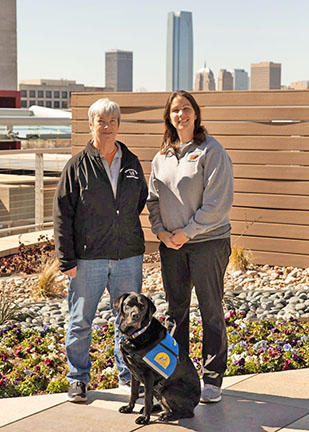
Her official title is facility dog. Being of service is what the black Labrador was bred, raised and trained for. But more than just helping patients regain motor skills or improve recall, Raisin reminds them of life outside of the hospital, sits with them without judgement or demands and brightens their souls with a dog’s endless capacity for joy.
When Kristy Doyle, supervisor of therapeutic recreation, arrived at Oklahoma City VA 29 years ago, rehabilitative options were limited. Today, the Community Living Center is awash in colorful drawings, sculptures and collages created by patients. Music frequently fills the halls. Adaptive sports help inspire Veterans to celebrate what their bodies can do. Recently, the facility has added virtual reality to its list of rehabilitation tools.
“I’m really proud of the program we’ve built and our staff of recreation therapists. They’re an intelligent, creative, dedicated, fantastic staff that’s developed an amazing treatment program for our Veterans,” Doyle shared.
Knows about 40 commands
One of Doyle’s proudest additions is the facility dog program, which began in 2009. Though Raisin isn’t the first to bear her title, she went through two years of training to earn it. Canine Companions, the oldest service-dog organization in the country, made sure Raisin could remain calm in even the most chaotic setting and that she knew about 40 different commands like turning off lights and opening doors.
They also wanted to ensure she was just the right fit for Doyle and Oklahoma City VA, which provides care for more than 60,000 Veterans each year.
When Doyle arrived in California for the required two-week training course, she wasn’t sure who she’d end up taking home. Canine Companions assesses dogs’ and handlers’ compatibility for the first few days. But about three days in, Doyle met her “magic match.”
“We asked for a dog who couldn’t get enough love,” Doyle said.
“That’s what we got,” added recreational therapist Sarah Sands. “Everybody who walks in the door is here to see Raisin. At least that’s what she thinks.”
Sands and Doyle have co-handled Raisin for nine years, and it’s been an ideal arrangement for the very busy therapists. Two days a week, Raisin accompanies Doyle to a clinic on 14th Street to work with outpatient mental health groups. The other three days, she goes to the Community Living Center with Sands to assist with extended care patients’ rehabilitation.
“Patients who have had strokes and are dealing with weakness on a certain side of their body can brush her or use both of their hands to massage or pet her,” Sands said. “They might throw her a ball, play tug… those kinds of things.”
Raisin also visits Veterans who are stuck in their rooms or beds for whatever medical reason. “She’s able to get up on the bed with them and provide support. We have a palliative care unit and that’s where she does a lot of that kind of service… the emotional support, the socialization, the comfort. Those things these Veterans are missing because they’re in bed and can’t have their own pets here,” Sands said.
Doyle uses Raisin to help with cognitive rehabilitation as well. “If somebody’s having trouble sequencing after an injury or illness, you could do something like take off her vest and her collar and her leash, and then have them problem solve, putting all that back on,” Doyle said.
Calmed an anxious Veteran
The word magic is used frequently in reference to Raisin. Many patients agree her impact is hard to put into words.
“A Veteran came in quite anxious just from driving to VA and parking. Her goals were working on anxiety and learning coping skills, so she was really anxious. She said she needed Raisin. They went and sat down together and she said Raisin reminded her to be in the moment. Faced with her powdered-sugar snout and loving chestnut eyes, who could be mad?” Doyle asked. “I feel like our facility dogs—and I think Raisin’s been especially impactful this way—have changed the treatment environment. I don’t know how to describe it exactly but they lighten the air. Walking down the hallway, you can just see people’s posture, their facial expressions. It all changes just from seeing her.”
When Kristy Doyle and Raisin retire on May 31, they’re off to relax and have some fun. They certainly earned it after a combined 38 years of helping Veterans.
Topics in this story
More Stories
For the Great American Smokeout, explore VA resources and learn why every attempt to stop smoking is a step toward success.
If you’ve lost a loved one to suicide, resources and support are available to help you cope during your grieving and healing.
Army Veteran Denis Velez donated a painting of his VA hospital as a way of giving back for his treatment there.

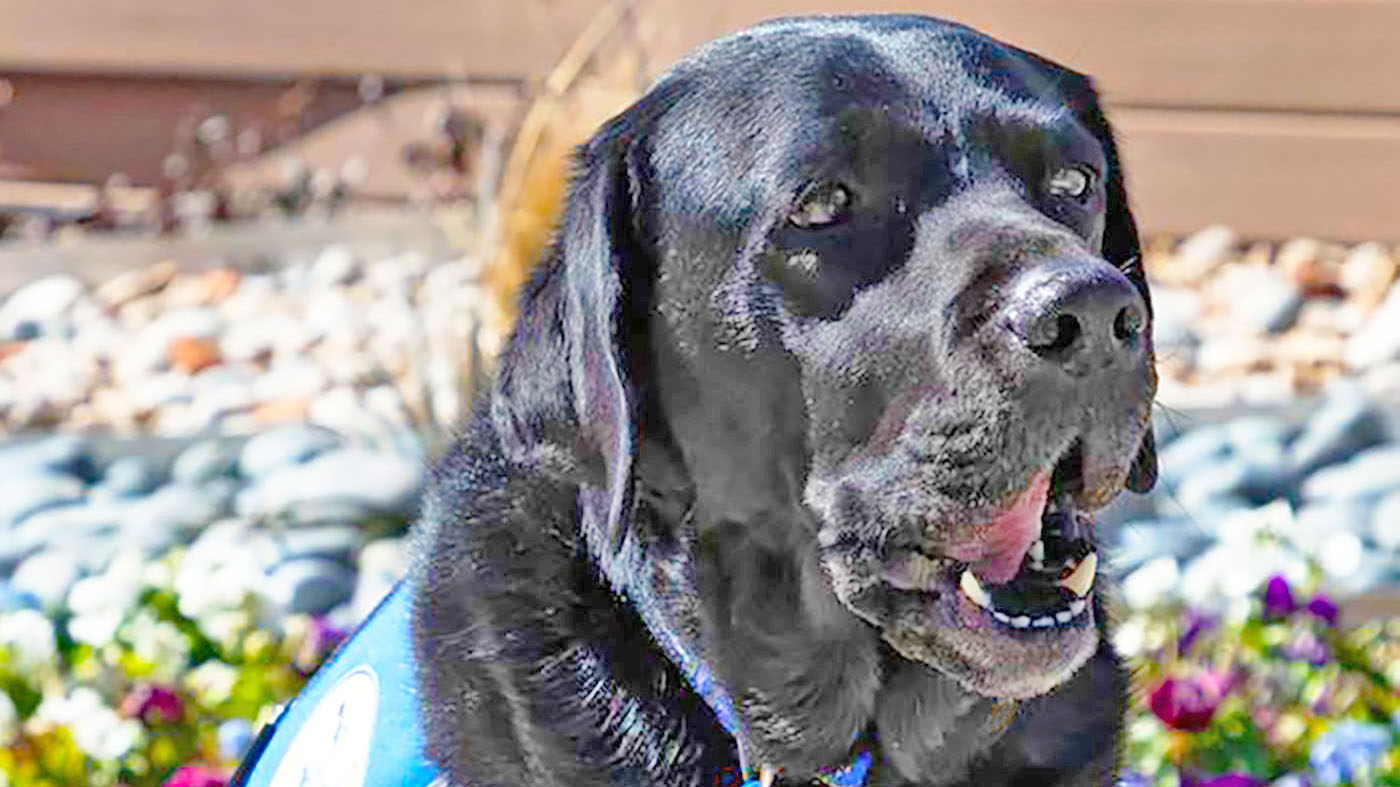
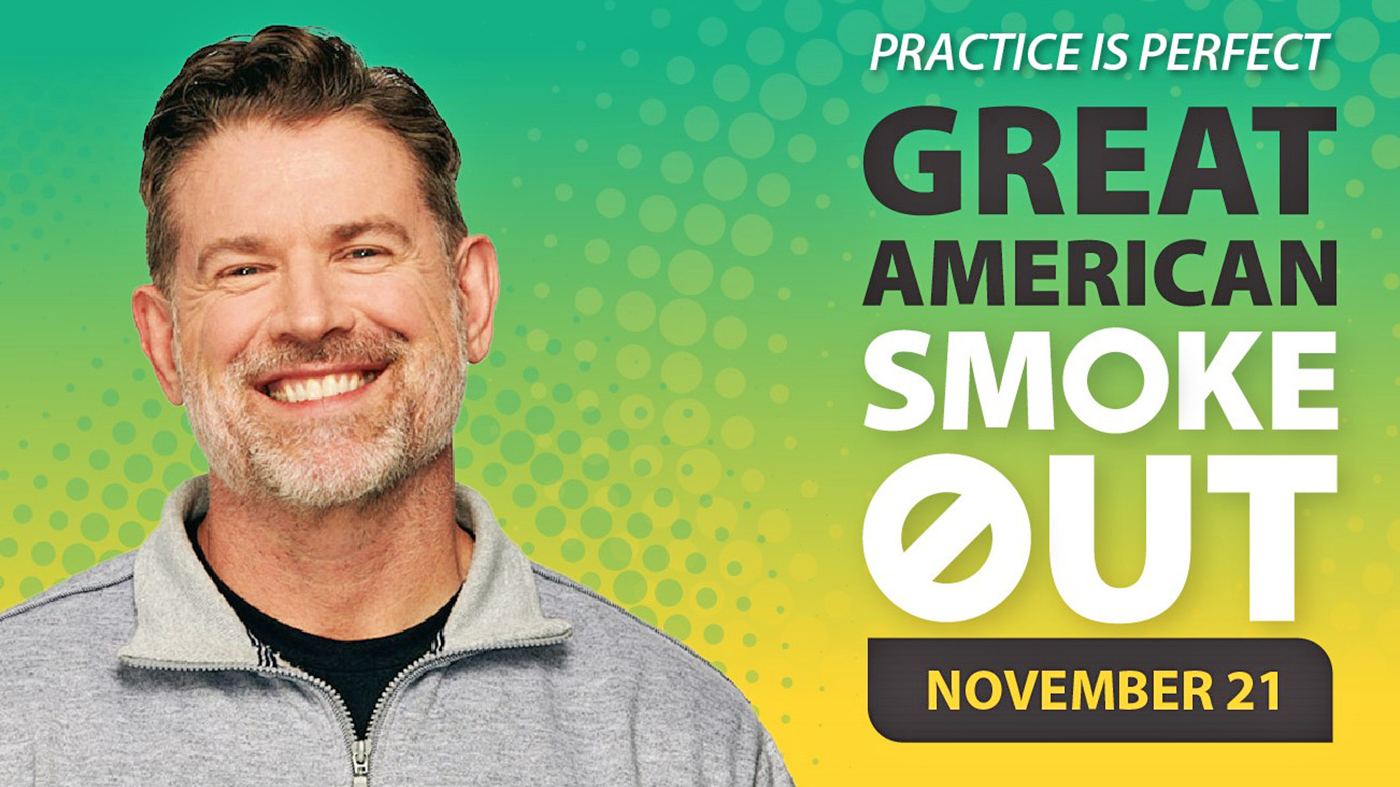
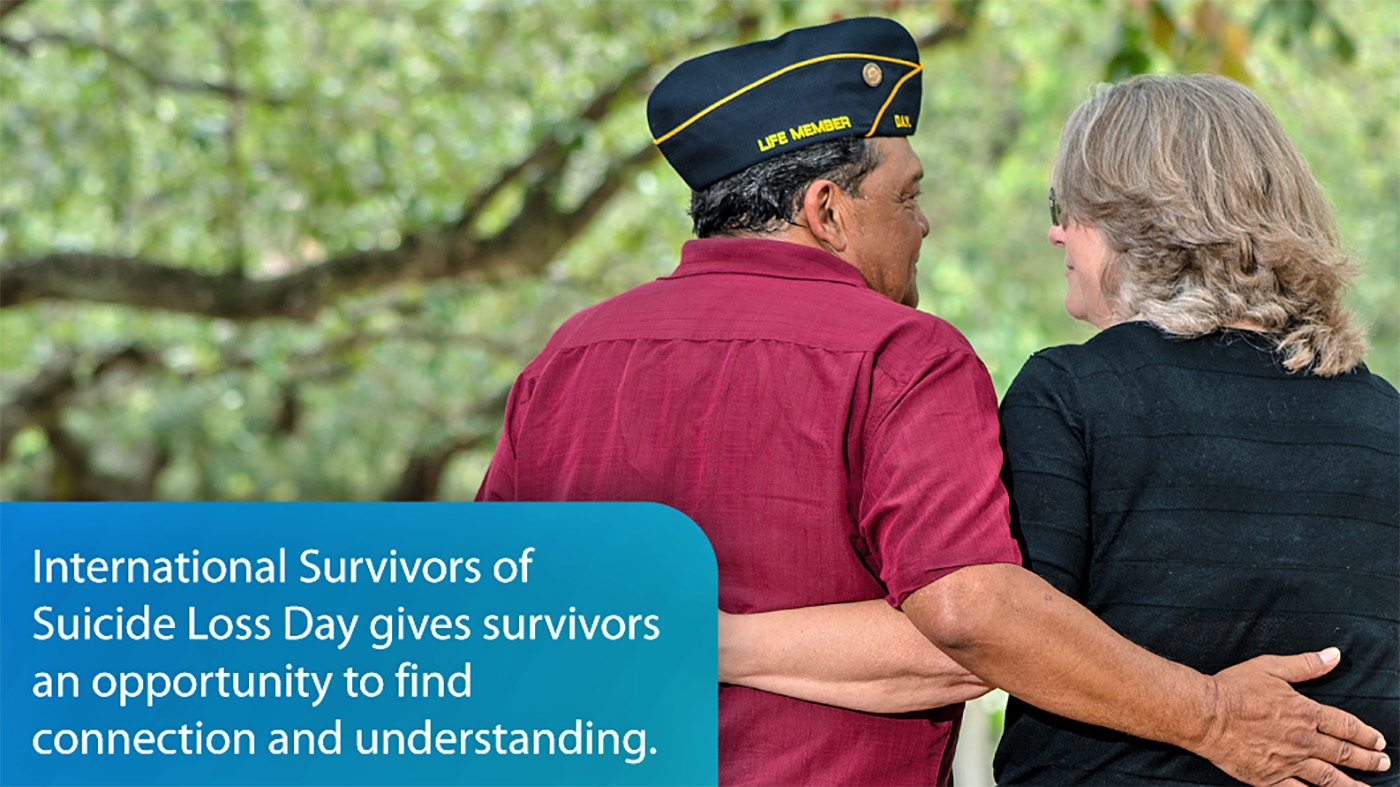
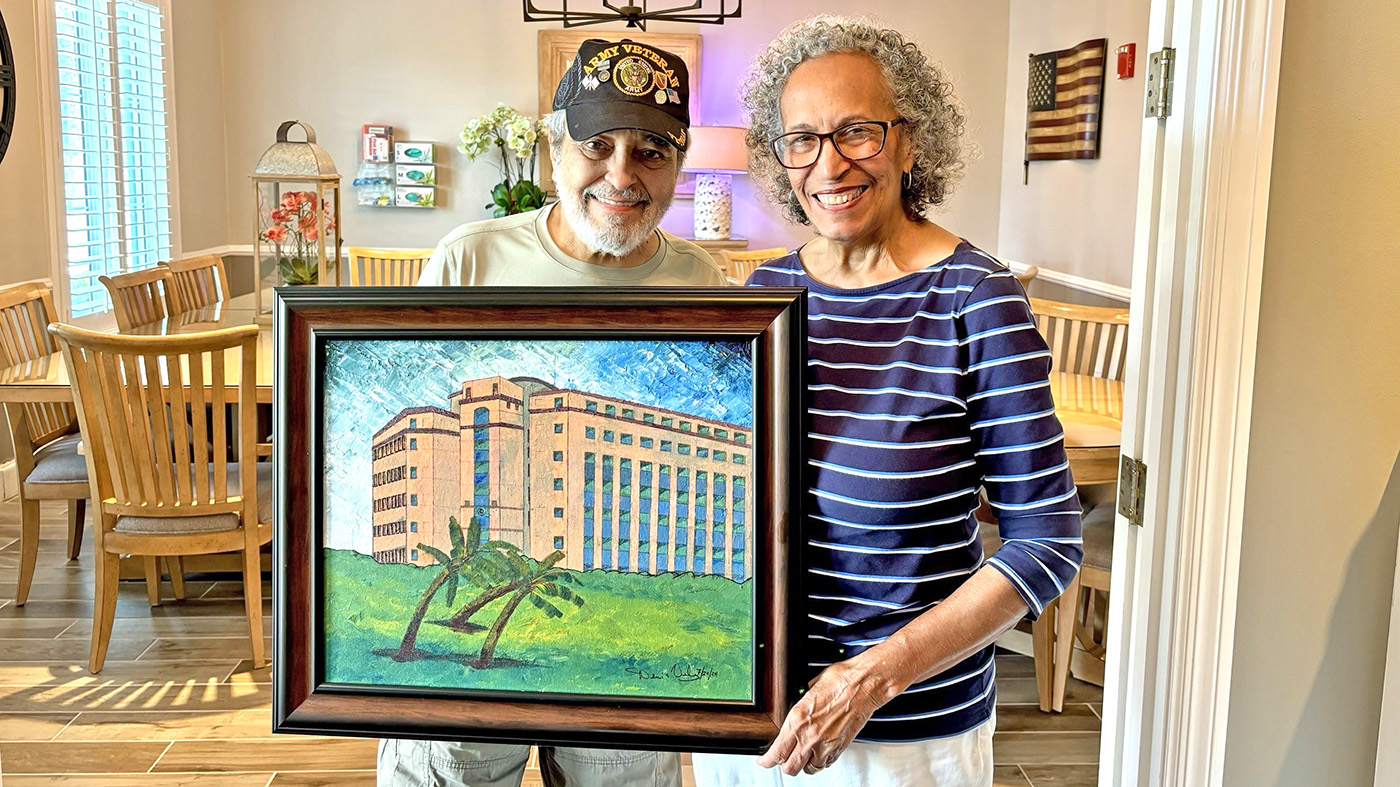


Never saw any therapy dogs when I was there. As an employee or a patient